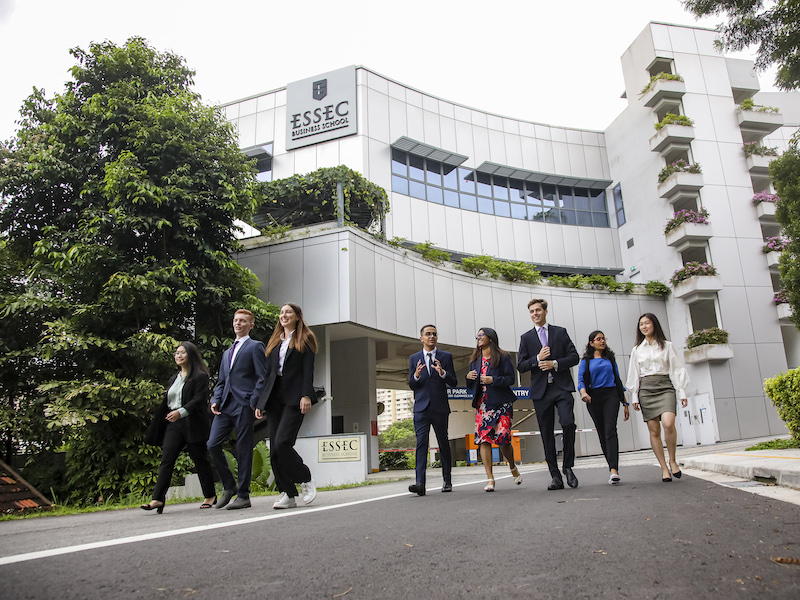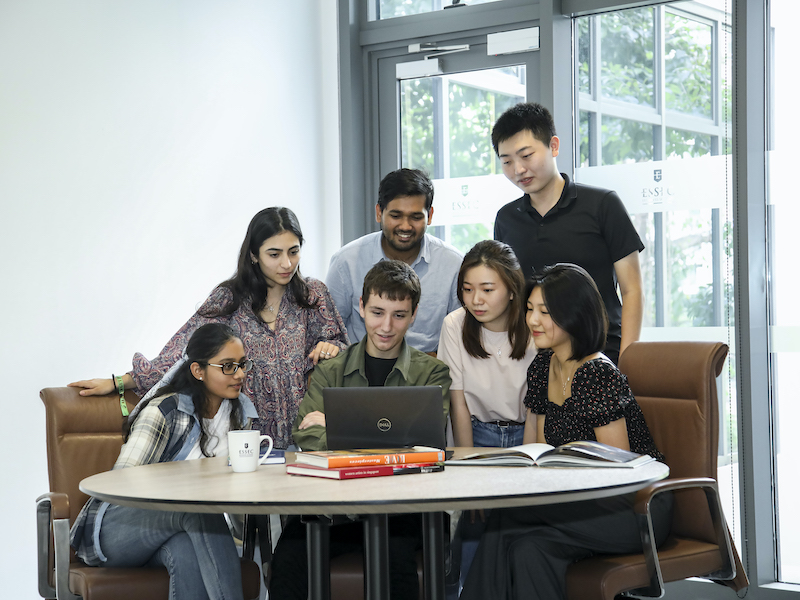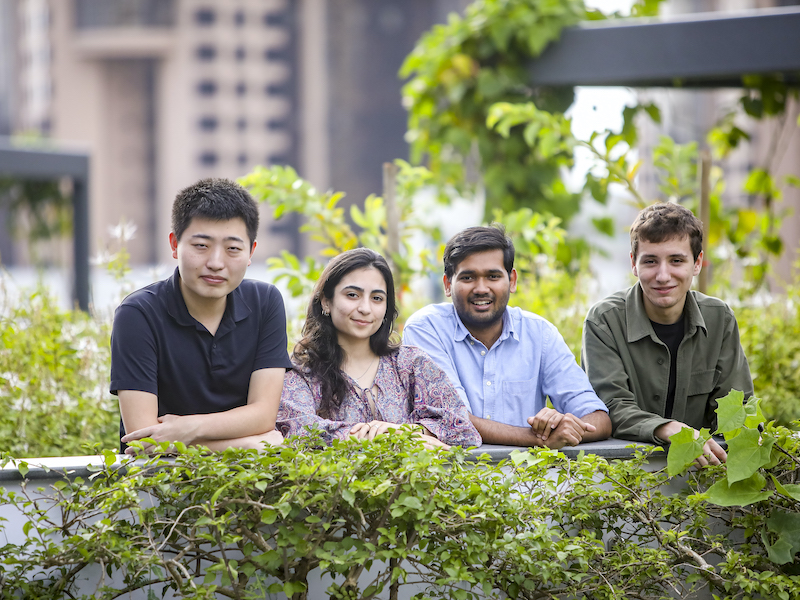It’s your child’s first step onto their university campus and they’re suddenly engulfed with a range of emotions, from excitement to apprehension. For the past two years, they’ve been preparing for this milestone. The pressure is on now to make new friends, ace their degree and create lifelong memories. This first step is a challenge for everyone – including parents! Despite their children’s growing independence, parents play a vital role in helping them adjust to this new phase of life. Not to mention, attending university in Singapore is a significant financial investment and parents are often involved in funding their child’s education. So we asked the team from ESSEC Business School in Singapore to share information about their upcoming Zoom event and how parents can prepare their kids for university challenges and studying a business course.
About ESSEC’s Zoom event: Helping Your Child Prepare for University
Recognising that parents may find it challenging to navigate the university preparation journey, ESSEC is holding a Parents’ Dialogue Session on 1 April, from 3pm to 4.30pm. The panel of speakers aims to provide insights about how parents can help their child choose the best fit for university. Up for discussion are issues that parents commonly face, including the emotional, mental, academic, financial, safety and logistical aspects of the child’s journey.

ESSEC APAC Deputy Dean Reetika Gupta will focus on the value of selecting a business course in Singapore. The panel discussing how to prepare for university challenges will include Global Bachelor of Business Administration (GBBA) Associate Academic Director and Associate Professor of Accounting Daphne Lui, Professor of Management Practice Gautam Kiyawat, as well as Mr Jusup Tjahjono and Mrs Lenny Mogi. (parents of Priscilla Ayleen, a second year GBBA student).
Following the panel discussion about business courses in Singapore, GBBA graduates will discuss how the program has equipped them in their professional journey. To end, the floor will open for a Q&A session.
What are common university challenges for new students?
Starting university in Singapore can be a real test of emotional capacity, academic skills and practical abilities. This may be the first time your child is entirely in charge of managing a budget, experiencing homesickness and adjusting in a new country, learning environment or living situation. On top of that, they are also adapting to new subjects, project deadlines, different cultures, professional exposure and career planning for the first time.
How does ESSEC help students transition to university in Singapore?
The ESSEC campus is a vibrant and safe community where students can bond, learn, grow and thrive. With about 800 students arriving per year across all programs, students can really get to know their own cohort and students in other years easily.
Before the start of their studies, ESSEC reaches out to parents and students to begin preparing them for the transition to university in Singapore. This includes invites to regular fireside chats and an in-person Meet-and-Greet session with the key personnel of ESSEC.
All along, the school facilitates interactions and friendship between the current and incoming batch of students. The integration of new students within the community is also helped along with online platforms, and in-person orientation and induction sessions when they arrive. They also receive one-on-one support from Academic Affairs, Student Experience and Careers Services for any university challenges they face.
Three students reflect on their first year at ESSEC
“ESSEC has a pre-arrival and campus experience team that helps students settle down well in Singapore and have a fulfilling student life. Students feel comfortable in this cosy campus and enjoy close interaction and one-on-one support from staff, faculty and peers.” – Eun Li Seo (third year)

“I wanted to experience studying abroad and ESSEC’s campus in Singapore gave me this opportunity. Having lived all my life in France, moving to a new place far away was daunting – a new culture, new people, having to live by myself and so on. But with the help of the ESSEC community, it was easy for me to overcome these challenges and adapt to my new phase in life.” – Vivien Cotier (second year)
“The ESSEC Global BBA experience has been one in a million. I have always wanted to learn new languages, meet new people and create new connections. ESSEC has helped me achieve all these. I also find their pedagogy useful in putting theory into practice. Students have to undertake many presentations and assignments which definitely give us a better understanding on the topics taught.” – Rachel Celine Joseph (second year)
About ESSEC Business School in Singapore
A leading pioneer in education since 1907, ESSEC holds the prestigious triple crown accreditation awarded by top accreditation bodies AMBA, EQUIS and AACSB. There are a variety of business courses with undergraduate and postgraduate programs available, including Business and Management Studies, for which ESSEC is ranked in the top 5% in the world in the QS World University Rankings by Subject 2022.

Besides the Global Bachelor of Business Administration (GBBA), also on offer is a joint degree ESSEC-CentraleSupélec Bachelor in Artificial Intelligence, Data and Management Sciences. ESSEC also provides international mobility with campuses located in Singapore, France and Morocco.
Plus, students can embark on overseas exchanges and double degree programs from ESSEC’s partnerships with over 175 prestigious academic partners. They also have the chance to learn two other foreign languages. As part of ESSEC’s “learning by doing” approach, students are exposed to company visits, talks by industry experts and projects with renowned companies, all of which effectively blend academic learning and practical experience with multicultural openness.
Visit the ESSEC website for more information on selecting a business university in Singapore.
Read about international schools, things to do in Singapore and more in our Living in Singapore section.





